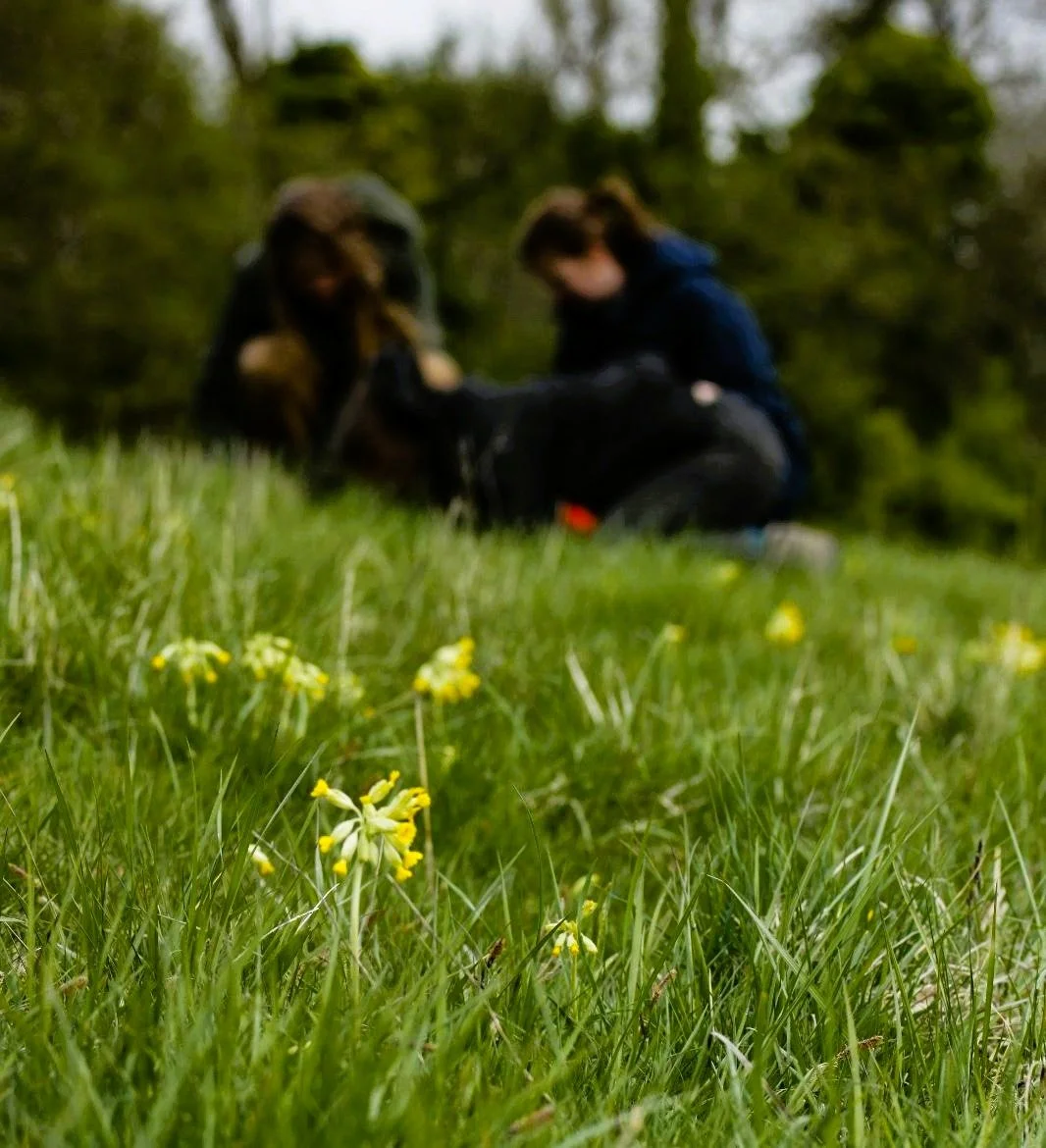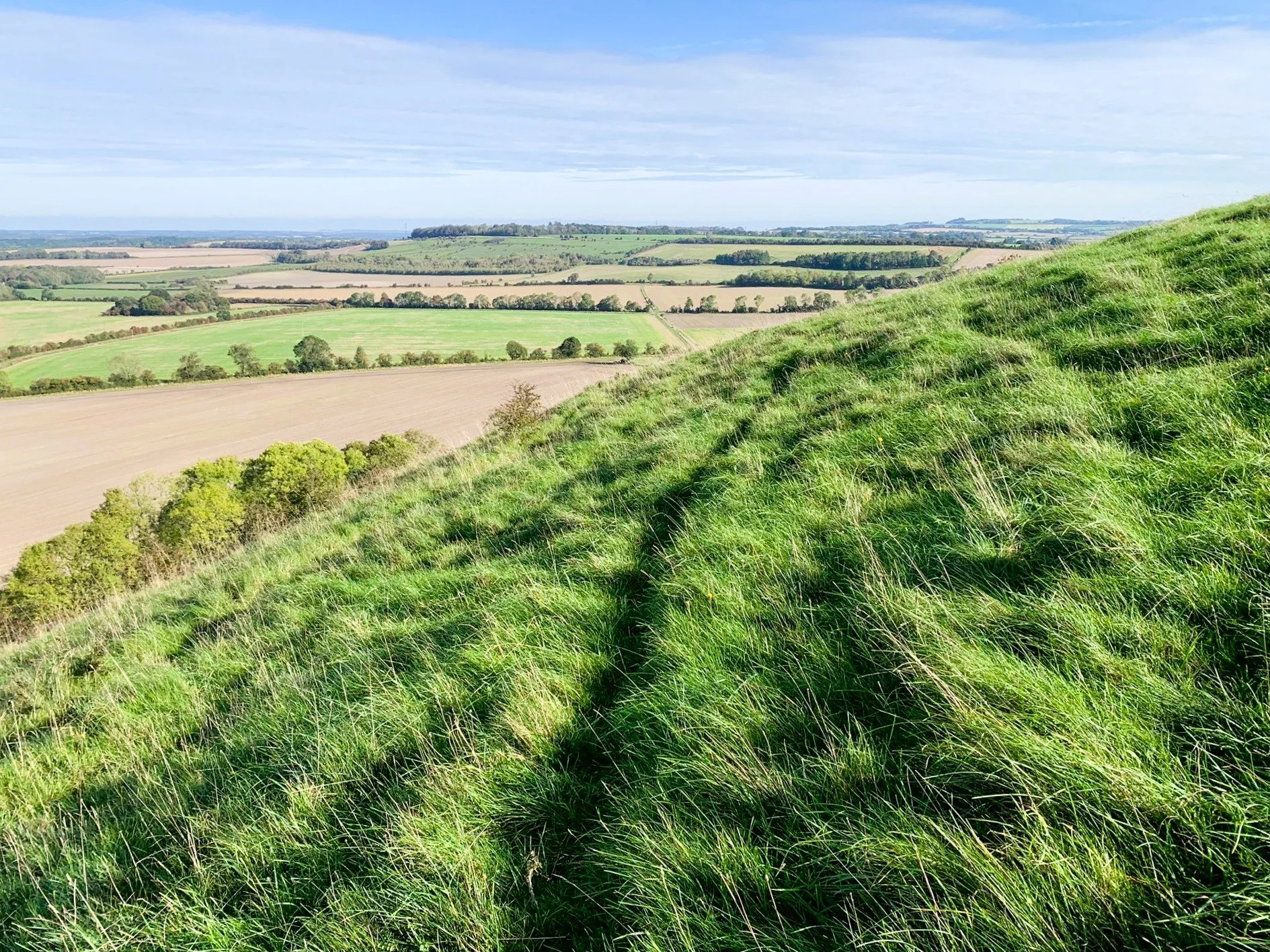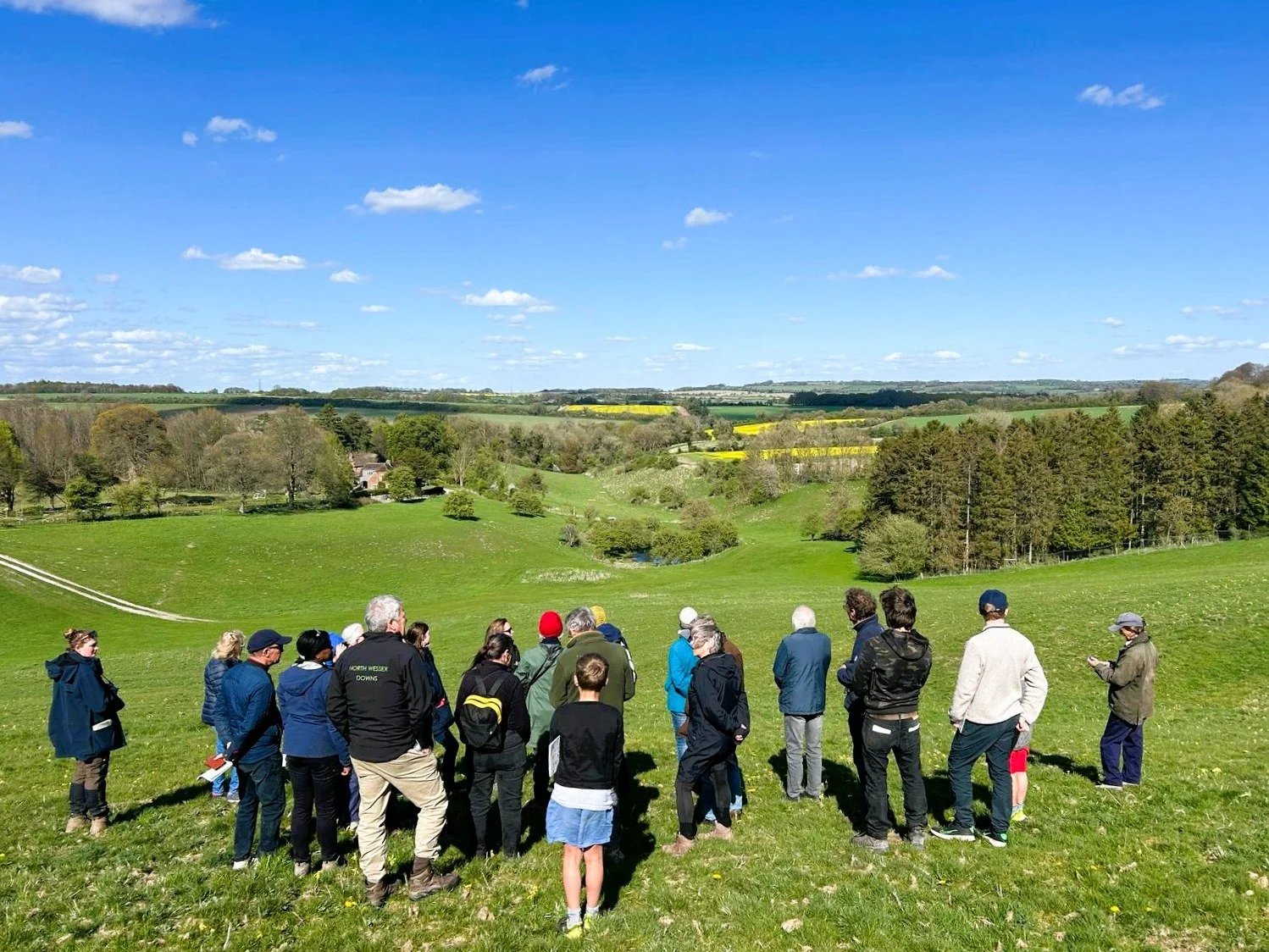Partnerships for Nature – Chalk Grassland Restoration
In collaboration with:
The North Wessex Downs National Landscape Partnership has secured a £1.5 million grant from Defra’s Species Survival Fund to deliver its ambitious Partnerships 4 Nature programme – a significant investment in nature recovery across this nationally important landscape. Running until March 2026, the programme will restore and enhance a mosaic of habitats, creating space for rare and vulnerable species to thrive while strengthening the resilience of the wider countryside.
A core part of this work is the collaboration between the Southern Streams Farmer Group and FWAG South East, who are focusing their efforts on chalk grassland restoration – one of the UK’s most threatened yet ecologically rich habitats. Chalk grassland is exceptionally diverse: in the best quality turf, over 40 species of flowering plants can be found in just a single square metre. Around 9% of the UK’s chalk grassland lies within the North Wessex Downs, but this habitat has declined by almost a third in recent decades and surviving fragments are increasingly isolated. Restoring and reconnecting these landscapes is therefore a vital priority for nature recovery.
At Tidcombe, work is already underway to enrich and restore 20 hectares of semi-improved chalk grassland. This year, over-seeding and plug planting have been carried out, alongside targeted scrub clearance, to increase plant diversity and improve the structure of the grassland. These enhancements will help support a wide range of species, including the iconic Duke of Burgundy butterfly. In time, the habitat improvements will also create stronger ecological links between existing areas of chalk grassland, allowing wildlife populations to move more freely through the landscape.
Opportunities for local people have also been created to ensure there are benefits across the landscape and beyond the end of the project. Volunteers have been trained to monitor butterflies and have begun undertaking transects across the Southern Streams group area to identify species on farmland. Additionally, conservation advisors have been trained to identify Duke of Burgundy caterpillar feeding behaviour to support sensitive advice when managing habitats for threatened species.
For more information, please visit the North Wessex Downs project website (https://www.northwessexdowns.org.uk/our-work/our-current-projects/partnerships-for-nature/ )
Partnerships for Nature is funded by the Government's Species Survival Fund. The fund was developed by Defra and its Arm's-Length Bodies. It is being delivered by The National Lottery Heritage Fund in partnership with Natural England and the Environment Agency.






